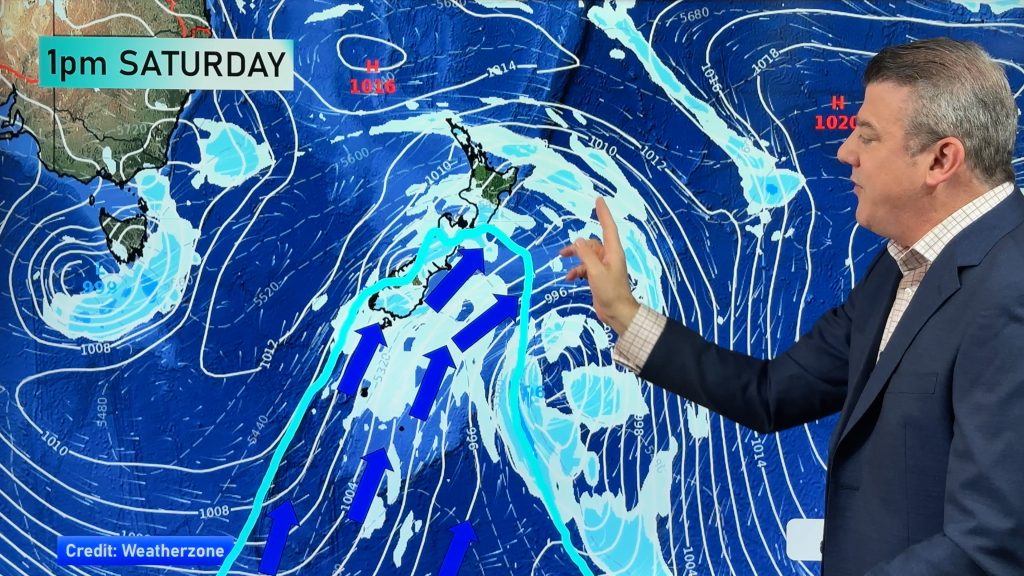
> From the WeatherWatch archives
Poor Pluto. Is it or isn’t it a planet?
Ever since astronomer Clyde Tombaugh at the Lowell Observatory in Flagstaff, Arizona, discovered it on February 18, 1930, we’ve believed that we live in a solar system with nine planets.
Then, along came the International Astronomical Union, the group that gets to name planetary bodies. In 2006, it came up with some rules for what is and is not a planet. The group decided Pluto didn’t make the grade.
It was demoted to a dwarf planet, leaving our solar system with just eight planets: Mercury, Venus, Earth, Mars, Jupiter, Saturn, Uranus and Neptune.
The union says a planet is a celestial body (PDF) that:
1. Orbits the sun
2. Is round or nearly round
3. Has cleared the neighborhood around its orbit
Pluto orbits the sun, and it’s round. It got kicked out as a planet because of rule No. 3: The astronomical union said Pluto was too small to knock other space rocks out of its path as it orbits the sun.
But the group’s definitions — and the public’s attachment to tiny Pluto — sparked lots of debate. On September 18, the Harvard-Smithsonian Center for Astrophysics jumped into the debate: What is a planet? It had some experts discuss the definition of a planet and then let the audience vote. Guess what? They voted that Pluto is a planet.
One person who never accepted Pluto’s demotion is Alan Stern, principal investigator for the New Horizons spacecraft, the first spacecraft sent to Pluto. He said Pluto was given the boot because of its distance from the sun.
“In fact, if you put Earth where Pluto is, it would be excluded!” Stern said. “Any definition of planethood that excludes Earth, in any circumstance, is deeply flawed. After all, if there is any object everyone agrees is a planet, it’s Earth.”
And he agrees with those in the audience at that Harvard panel discussion.
“I think the public is better suited to this than astronomers, at least,” Stern said. “The IAU should never have pretended to have the expertise to enter into this debate. It’s a matter for planetary scientists, not astronomers.”
Don’t forget that the other eight planets also have their differences: Mercury, Venus, Earth and Mars are rocky; Jupiter and Saturn are gas giants; and Uranus and Neptune are ice giants.
“This is really about a revolution in planetary science,” Stern said. “We’re seeing that what we used to know about the number and variety of planets was very data limited until the mid- to late 1990s. Now we know that there are lots of types of planets.”
NASA’s decades-old Voyager 2 mission is a preview of new mission to Pluto
When New Horizons arrives at Pluto in July, it might not end the debate over Pluto’s status as a planet, but Stern says the mission is “going to be mind-blowing.”
The spacecraft has to survive what Stern calls the “seven weeks of suspense,” dodging asteroids as zips toward Pluto. Then, we’ll finally get a detailed, amazing photos of the tiny world. Planet or not, Pluto is finally coming into focus.
– CNN
Comments
Before you add a new comment, take note this story was published on 5 Oct 2014.






Add new comment
Guest on 6/10/2014 12:45am
If the Earth were where Pluto is, there wouldn’t be anyone living on it, so it wouldn’t be nearly as important.
There has to be a cutoff somewhere. If Pluto is a planet, then so are several other further out bodies.
You can’t invoke the historical argument i.e. “Pluto was traditionally a planet”, because there were six known planets for far longer than there were nine.
Reply